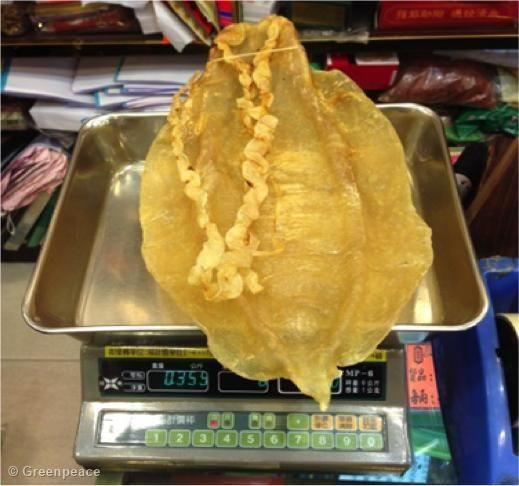Move To Permit Trade Of Totoaba Fish May Imperil 'Critically Endangered' Vaquita, Environmentalists Say
KEY POINTS
- The vaquita is among the most endangered marine mammals in the world
- They tend to get trapped in the nets used to catch totoaba fish
- A facility in Mexico recently received permission to trade in totoaba fish
An aquaculture facility in Mexico has been granted permission to engage in the trade of captive-bred totoaba fish. However, conservation groups are voicing concerns that the move may further jeopardize the future of the critically endangered vaquita porpoises.
The vaquita is among the most endangered marine mammals in the world, with only eight of the species believed to be left on the planet, according to the Center for Biological Diversity (CBD). One of the major threats to the vaquita is the fishing of the totoaba, a large fish species native to the Gulf of California in Mexico. The nets used to catch them are also large enough to catch and trap vaquita, causing them to drown.
Just last February, the U.S. government sought formal trade talks with Mexico regarding preventing the illegal trade of totoaba and protecting the vaquita. The totoaba bladder (maw) is in demand in China and other countries largely "as a symbol of wealth and for their purported, but unproven, medicinal value," CBD said.
However, the Committee on Convention on International Trade in Endangered Species (CITES), which aims to ensure international trade doesn't "threaten the survival of the species," last week reportedly voted 9-6 to permit an aquaculture facility in Mexico to sell captive-bred totoaba fish.
Conservation groups voiced concerns over the approval. The nonprofit Environmental Investigation Agency (EIC) said the legal trade could also "provide cover" for illegal trade that can also harm vaquita. Under CITES Appendix I, the totoaba is "subject to the highest protections" because of "ongoing, rampant and uncontrolled" illegal fishing using the gillnets that harm the vaquita.
"The support of the two European Standing Committee members enabled this application to be approved, with no regard for the precautionary principle and the potentially dire consequences for the critically endangered vaquita," EIC oceans campaigns leader Clare Perry said in a statement. "A legal trade in totoaba, whether it includes swim bladders right now or not, will only complicate enforcement and increase demand for the wild fish that shares the same habitat as the vaquita."
In a Twitter thread, CITES noted that the farmed fish bladders will be destroyed.
Totoaba bladders are illegally traded but the farmed fish bladder will be destroyed and products will be stopped from entering illegal trade. The hope is this will contribute to reducing illegal Totoaba fishing
— CITES (@CITES) March 10, 2022
However, the Cetacean Society International questioned the move's impact on the vaquita.
"This decision is nonsense, and it could be the last straw for one of our planet's most endangered marine mammals," said Alex Olivera, senior scientist and Mexico's representative of the CBD.
"With the vaquita teetering on the edge of extinction, we should be doing everything possible to eliminate all threats to the porpoise, including from the totoaba trade. CITES' decision to open up totoaba trade only intensifies the mounting threats to the vaquita," Olivera added.

© Copyright IBTimes 2025. All rights reserved.






















